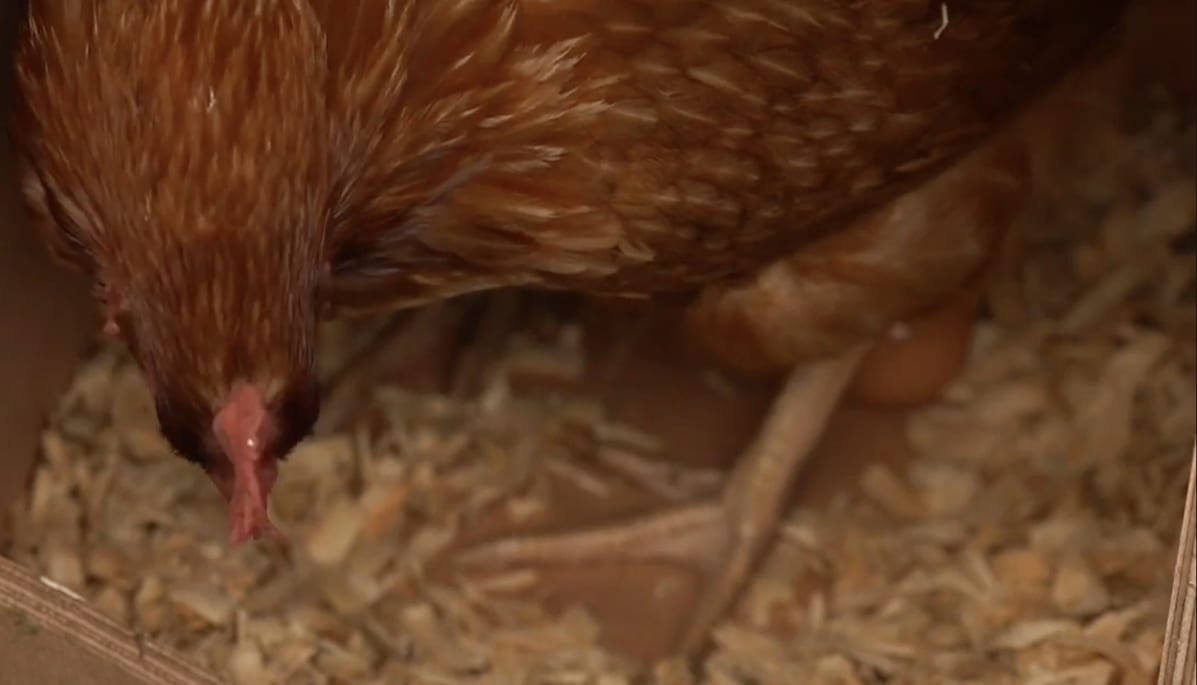How Many Nesting Boxes Do You Need for Your Flock? (With a Handy Calculator!)
How Many Nesting Boxes Do You Need for Your Flock?
Setting up a happy, productive chook coop starts with the right number of nesting boxes.
The rule of thumb is one nesting box for every 3 to 5 hens, but that’s just the starting point and exceptions.
Chickens are quirky creatures with strong preferences—some boxes might stay empty while others become hot property! You don't need a separate nesting for every chicken, but even with just two hens, we recommend to get two nesting boxes to avoid squabbles. Larger flocks can happily share the laying boxes, so for example for a 20 hen flock 4-7 nesting boxes is ideal.
We made a handy calculator for calculating how many nesting boxes you need for your flock, check it out below!
Providing the right number of boxes keeps your laying hens stress-free, keeps your eggs cleaner, and reduces bullying.
For quality and durability, check out our Australian-made Dine-A-Chook nesting boxes. Whether you’re just starting out or expanding your flock, we’ve got the perfect nesting box solution.
Key Takeaways
- One nesting box for 3–5 hens is usually enough, but adjust based on flock behaviour.
- Provide at least two nesting boxes, even for just two hens, to prevent fighting.
- Chickens often share favourite boxes, leaving others unused - this is normal.
- Monitor your hens for signs of squabbling or queuing, you can always add more.
How Many Chickens Per Nesting Box?
A single nesting box can comfortably serve three to five hens, as hens don’t lay all at once. You will often see a couple of hens in the box at once as well.
This flexibility is why you don’t need a box for every hen.
Here are some examples:
- A flock of 6 hens needs 2 nesting boxes.
- With 12 hens, 3 or 4 boxes will usually suffice.
- A large flock of 20 hens should have 4 to 7 boxes, depending on their behaviour.
Start with the general rule, then adjust if you notice your hens bickering or queuing up. Happy hens lay better eggs, so it’s worth keeping an eye on their preferences.
Nesting Box Calculator
Wondering exactly how many nesting boxes your flock needs?
Use our handy calculator below to get a quick estimate based on your flock size:
Types of Nesting Boxes for Your Flock
Choosing the right nesting box is just as important as knowing how many you need. Here’s a quick guide to our Dine-A-Chook nesting boxes and how many hens they can accommodate:
1. Single Chicken Nesting Box
- Good for: 3–4 hens.
- A must-have for small flocks or as an additional box to prevent squabbles.
- Even if you only have a couple of hens, having at least two of these boxes is ideal.
Shop now
2. Twin Chicken Nesting Box
- Good for: 6–8 hens.
- Perfect for medium-sized flocks, offering two spaces in one sturdy design.
Shop now
3. Roll-Away Chicken Nesting Box
- Good for: 3–5 hens.
- Designed to keep eggs clean and make collection hassle-free, it’s slightly bigger than the single nesting box.
Shop now
For DIY enthusiasts, see our guide to building nesting boxes.
Signs You Might Need More Nesting Boxes
While the general rule works for most flocks, every chook is different. Here’s what to watch for:
- Queueing or fighting: If hens are waiting for a specific box or squabbling over it, it’s time to add another.
- Eggs outside the boxes: This could indicate your hens feel crowded or uncomfortable in the available boxes.
- Crowded boxes: Multiple hens squeezing into one box can result in broken or dirty eggs.
If you notice any of these signs, consider adding one of our Dine-A-Chook nesting boxes to keep your girls content.
Final Thoughts on Nesting Boxes
Happy hens mean better eggs, and the right nesting boxes are a big part of that equation. Aim for one box per 3–5 hens, keep at least two boxes in your coop, and adjust based on how your chooks behave. A little observation and care go a long way in keeping your flock content.
For expert advice and high-quality supplies, check out our full range of chicken products at Dine-A-Chook or contact us today!
Happy chicken keeping!
Related articles:




